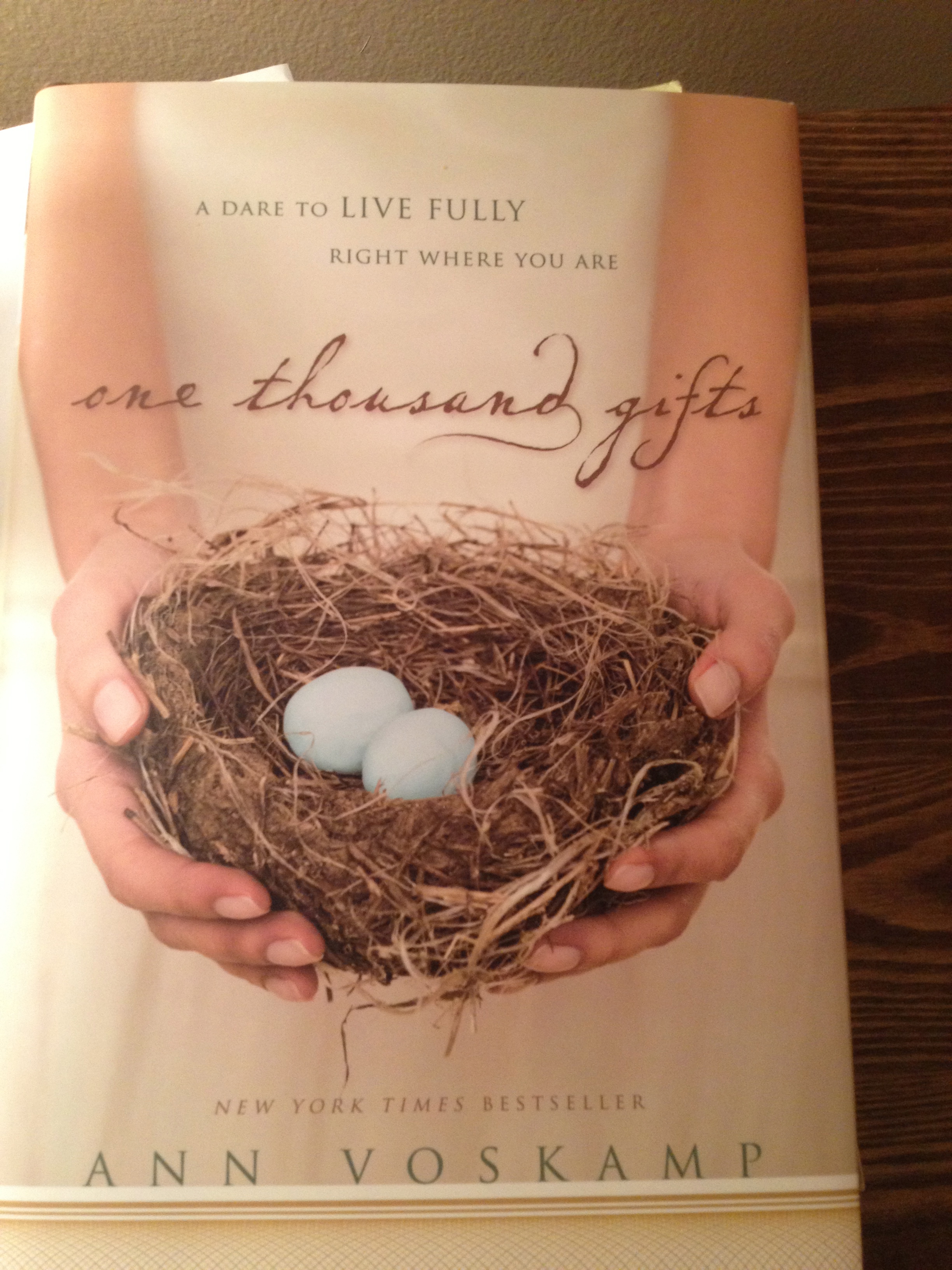 This week I read a well-written cover story in New York Magazine by Lisa Miller called "The Retro Wife." I also have read tons of news stories and blog posts and rants about the tragic Steubenville rape case. And I've come to realize that these two seemingly separate issues are inexorably linked.
It started with New York Magazine, and a deck that read: "The Retro Wife: Feminists who say they're having it all—by choosing to stay at home."
This week I read a well-written cover story in New York Magazine by Lisa Miller called "The Retro Wife." I also have read tons of news stories and blog posts and rants about the tragic Steubenville rape case. And I've come to realize that these two seemingly separate issues are inexorably linked.
It started with New York Magazine, and a deck that read: "The Retro Wife: Feminists who say they're having it all—by choosing to stay at home."
Four years ago, I was already that woman.
It went something like this.
I'm sitting in Dr. Benjamin's office, surrounded by a crowd of linen bound philosophers: Plato, Aristotle, Socrates, de Tocqueville, Machiavelli. Then there's me, a hopeful and anxious senior in college, ready and terrified of the stage that beckons me onward. It's calling my name, and so is he.
"So what comes next?" he asks dutifully, straightening a stack of papers and spinning in his swivel chair back toward a buzzing computer. He clicks away my transcript, and scrolls through his e-mail inbox. "Grad school?"
The suggestion is an old one. After all, the job market is hardly friendly, and I've already registered for the GRE, a command that came down from Colonel Carlton early on this year. But more school? Grad school?
"I don't know," I say slowly. "I don't want to apply just because there's nothing else to do. It seems like it could be a huge waste of money."
"Sure," Dr. Benjamin agrees. "It could be a huge waste of money if you're only going because there's nothing else to do."
"But," I continue, "if I don't go now, I'm not sure when I would. I hope to get married and have a family, some day too..."
Dr. Benjamin rotates back toward me, leaving his e-mail behind. "Would getting married and having a family keep you from going back to school?" he asks quizzically.
I freeze up for a moment, and wonder if I should say what I'm really thinking. I don't want Dr. Benjamin to believeI'm some bimbo who just came to college to find a husband, which clearly, from the light feeling on my left-handed ring finger, did not happen. I don't want him to lose respect for me. After all, I'm an intelligent student with a great GPA. I ought to have career ambitions. It's 2009. I ought to at least act like a feminist.
"No, no... you're right," I say. "If I figure out what I'd want to study, I'd definitely go back."
He looks a little relieved, and spins back toward his e-mail. But the words felt disingenuous coming out of my mouth. I know I probably won't go to graduate school. I know I probably won't want to. Because deep in my heart, I know what I really want. So I say it.
"I guess I always imagined myself staying home if I have kids," I say. His head juts backward and he raises his eyebrows in surprise, and immediately I regret what I've said. Great, now he thinks I'm an idiot. A disappointment to women who've worked to pave a way for me to do whatever I set my mind to. Surely now, he's looking at me and thinking I'm just a bimbo on the hunt for a man. But his words surprise me as much as mine surprised him.
"Good for you," he says sincerely. I'm shocked.
"Really?" I say, and laugh. "I've never said that to a professor, because I always feel like I ought to have these huge ambitions..."
"You know, I have to be careful when I talk to female students," he interjects. "I want to ask how they see family and relationships fitting into their plans, but I can't really go there unless you bring it up," he pauses. "I'm glad you did."
I sigh in relief. I just admitted the truth about the woman I want to be, and the man in front of me wasn't condescending. Now this is feminism.
 In the New York Magazine story, Lisa interviews a neo-traditionalist stay at home mom, Kelly Makino, and opens a new can of worms in the old world of feminism. The point? Maybe a woman can choose to stay at home with her children, care for her house and husband, and not be disregarded as a disappointing remnant of patriarchal oppression.
In the New York Magazine story, Lisa interviews a neo-traditionalist stay at home mom, Kelly Makino, and opens a new can of worms in the old world of feminism. The point? Maybe a woman can choose to stay at home with her children, care for her house and husband, and not be disregarded as a disappointing remnant of patriarchal oppression.
But the part that really sets Kelly Makino apart isn't that she's staying at home. It's that she's not a conservative, right-wing Christian—and she's staying at home. Lisa writes:
"Far from the Bible Belt's conservative territories, in blue-state cities and suburbs, young, educated, married mothers find themselves not uninterested in the metaconversation about "having it all" but untouched by it. They are too busy mining their grandmothers' old-fashioned lives for values they can appropriate like heirlooms, then wear proudly as their own."
As I read Miller's article, I remembered the conversation I had with my professor back at Furman, and in a way, I felt vindicated. I'm a young, educated, married woman (who hopes to be a mother), and New York Magazine finally confirmed that the fact that I want my family to be my top priority doesn't make me uneducated or "backwards." Even if I live in the Bible Belt. Even though I believe the Bible.
Thankfully, I didn't wait on New York Magazine's confirmation that I wasn't alone. I wasn't ashamed to say it four years ago, and now, there are other women who are are saying it too. Miller writes, "For some women, the solution to resolving the long-running tensions between work and life is not more parent-friendly offices or savvier career moves but the full embrace of domesticity."
But as I was reading, I realized that a woman can't just decide to stay at home without taking on some serious risk. There is a lot at stake when you choose to quit your job and chart a path that can eventually include raising children and caring for the domestic sphere. After all, when you leave the "working world," you become financially dependent—on someone else. On a man.
But dependence doesn't undo feminism. It simply requires integrity from men.
Neo-feminism requires integrity from men. It requires men to honor women. It requires a man to be faithful to his wife. It requires a man not to divorce his wife. It requires men that don't look at women as objects to be used, raped, and thrown away as objects of pleasure rather than creations of God's glory. It requires a culture of boys who don't treat girls like garbage.
It requires a new kind of man. A radical, counter-cultural man. It requires a man who is a feminist. It requires someone like Jesus.
In her response to Steubenville tragedy, Ann Voskamp wrote, "In a culture of boys will be boys, girls will be garbage." She pointed to Jesus as the Father of Feminism—the one who made women heroes in his stories, and came through the womb of a woman, and regarded women as treasures not trash.
Until we change the "boys will be boys" culture, girls will have to fend for themselves, fight to break the glass ceiling, and build their own wealth and empire so that if, no when, a man walks away to pursue some new conquest, we will survive, because we didn't depend on them in the first place.
It's this exact point that Lisa Miller makes to end her article and "press" Kelly Makino about her new way of life. She writes, in the last paragraph, "What if Alvin dies or leaves her? What if, as her children grow up, she finds herself resenting the fact that all the public accolades accrue to her husband?"
Neo-feminism requires more of women too.
It requires women who trust men. It requires women who respect men. It requires a woman to be faithful to her husband. It requires a woman not to divorce her husband.It requires a woman who believes that she is created by God, and valued beyond her resume.
It requires a new kind of woman. A radical, counter-cultural woman. It requires a woman who is a feminist and raises boys who are feminists.
It requires a woman like Jesus.



